8 totally obscure AOR albums that should have been huge
Not every hard rock band can be Journey or Bon Jovi – here are 8 lost AOR treasures that should have gone multi-platinum
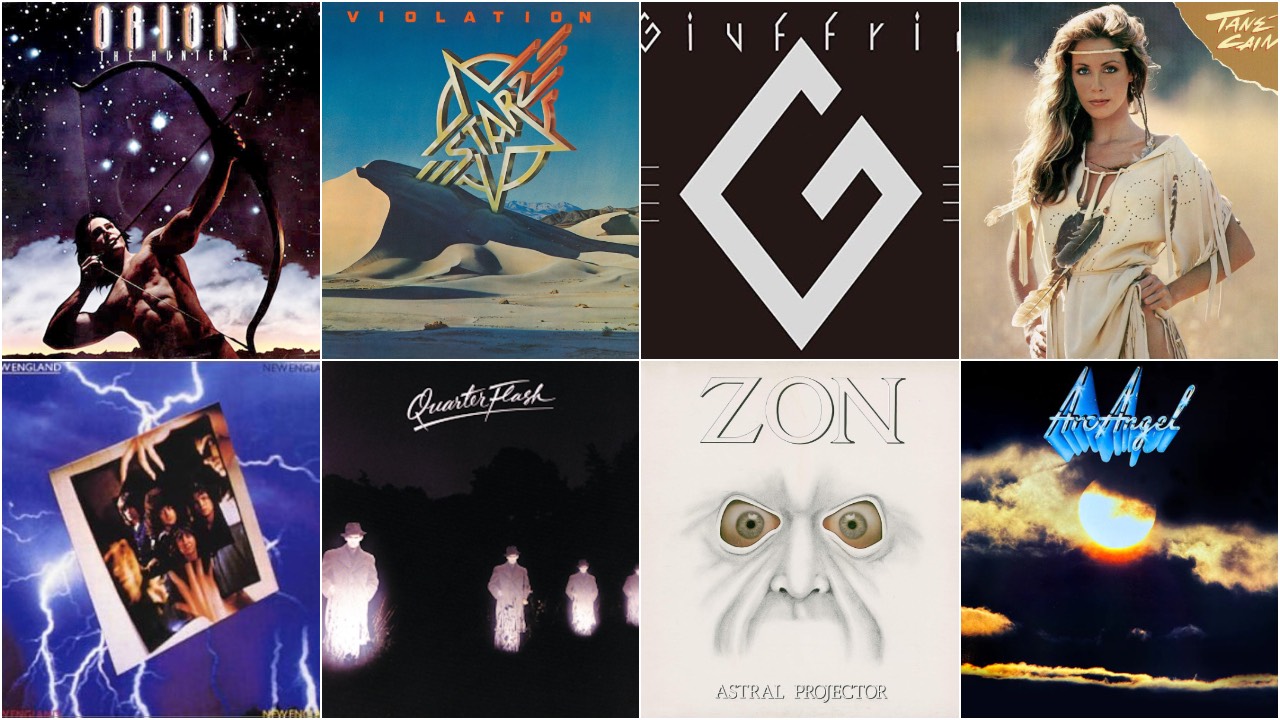
Select the newsletters you’d like to receive. Then, add your email to sign up.
You are now subscribed
Your newsletter sign-up was successful
Want to add more newsletters?

Every Friday
Louder
Louder’s weekly newsletter is jam-packed with the team’s personal highlights from the last seven days, including features, breaking news, reviews and tons of juicy exclusives from the world of alternative music.

Every Friday
Classic Rock
The Classic Rock newsletter is an essential read for the discerning rock fan. Every week we bring you the news, reviews and the very best features and interviews from our extensive archive. Written by rock fans for rock fans.

Every Friday
Metal Hammer
For the last four decades Metal Hammer has been the world’s greatest metal magazine. Created by metalheads for metalheads, ‘Hammer takes you behind the scenes, closer to the action, and nearer to the bands that you love the most.

Every Friday
Prog
The Prog newsletter brings you the very best of Prog Magazine and our website, every Friday. We'll deliver you the very latest news from the Prog universe, informative features and archive material from Prog’s impressive vault.
AOR bestrode the late 70s and early 80s like a colossus. Bands such as Journey, Foreigner, Boston, Toto, Survivor and countless others collected platinum records like others collected sports cards. But not every band was so lucky – for slick, MTV-approved keyboard bother were a hundred bands who failed to register. But as connoisseurs know, lack of success doesn’t mean lack of quality, as these five obscure yet brilliant AOR classics prove.
Orion The Hunter – Orion The Hunter (1984)
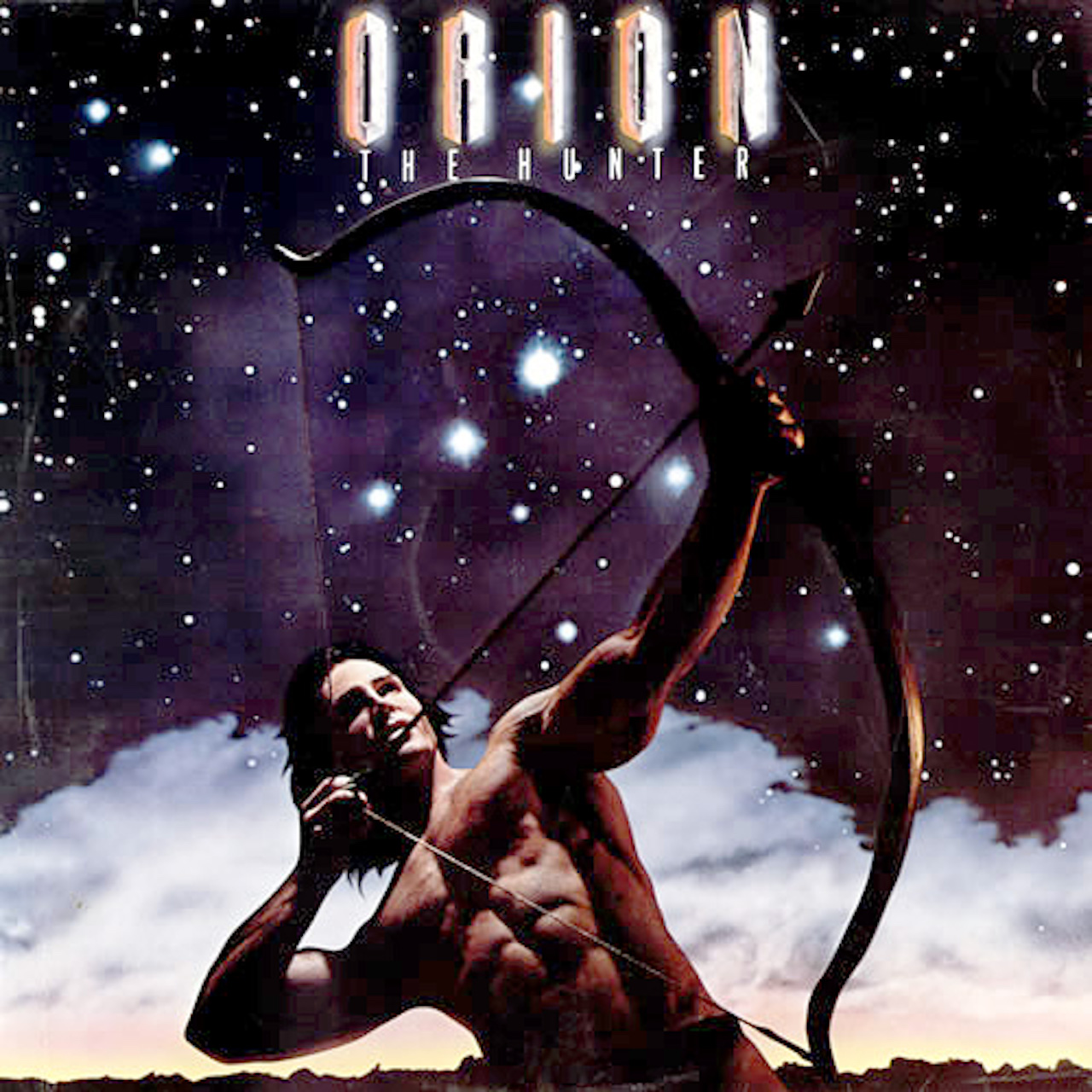
Orion The Hunter’s origins lay in the fractious and volatile makeup of Boston. By the early 80s, band leader Tom Scholz had assumed a mad-as-a-hatter grip on Boston’s activities. He started squeezing out band members, with guitarist Barry Goudreau being the first casualty. After recording a superb solo album in 1980, Goodreau turned his hand to forming a new band: Orion The Hunter.
His first move was to enlist vocalist Fran Cosmo who had sung (alongside Boston vocalist Brad Delp) on his solo album. Cosmo brought in bassist Bruce Smith, the two having played together in an earlier band, while ex-Heart drummer Michael De Rosier rounded off the unit. Keyboards were supplied by several participants including, rather bizarrely, Peter Woods, an ex-member of British prog rockers Quiver.
It was hardly surprising to find that on their self-titled (and only) release the band’s sound leaned heavily on the bold and pomptastic sound of the mothership. All Those Years, Dark And Stormy, Stand Up and especially So You Ran lead the pack, the latter becoming something of a turntable hit. Brad Delp also supplied prominent vocal back-up.
Disappointedly, the album (issued in 1984) only made Number 57 on the US chart. Unbroken, Goudreau stuck to his melodic rock roots and went on to form the distinguished RTZ with Brad Delp on vocals, a project scuppered by the impending arrival of grunge and shoegazing college rock. Fran Cosmo, in an ironic twist, was later drafted into Boston to fill the shoes of Brad Delp, thus deepening the incestuous relationship of the Bostonian kith and kin.
New England – New England (1979)
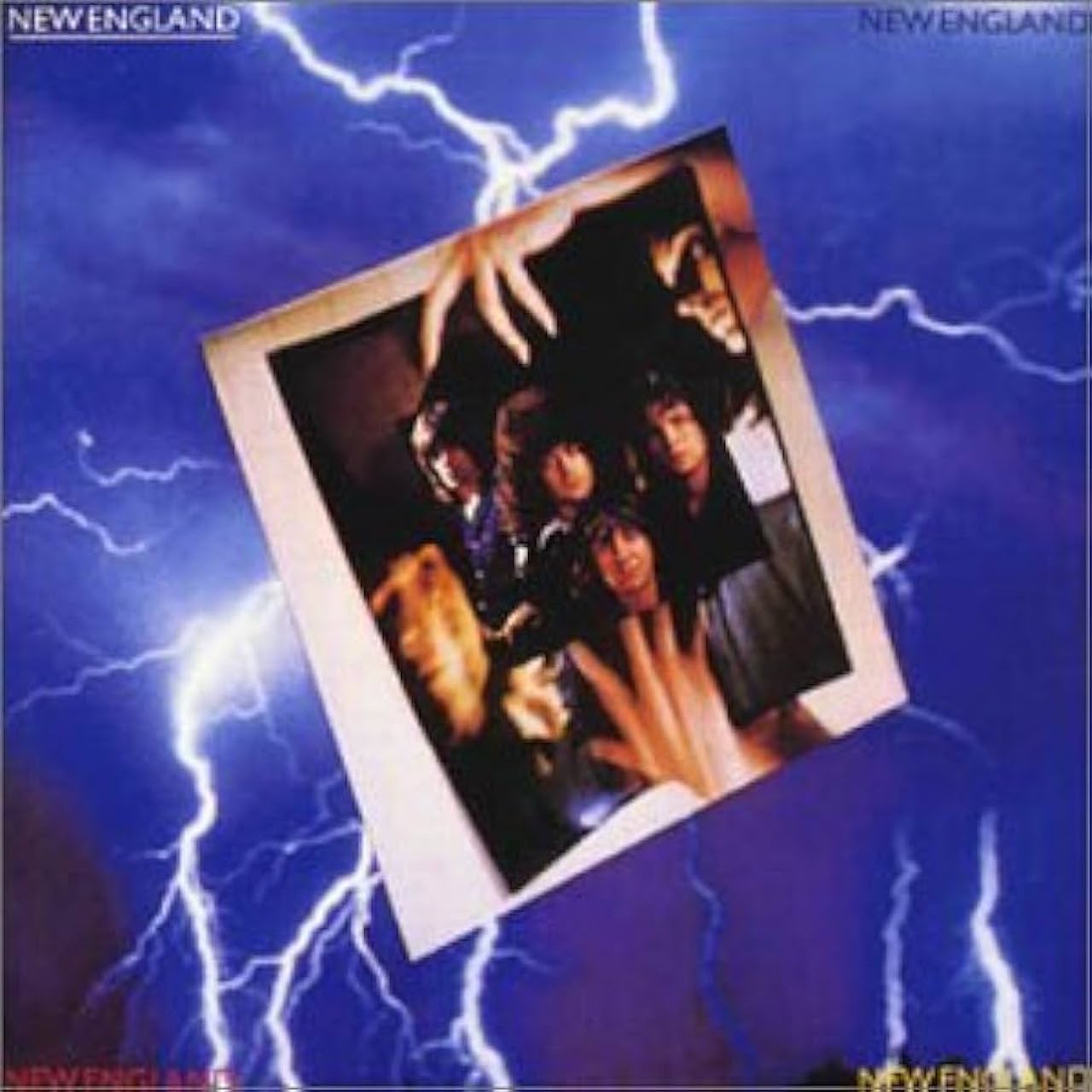
Fresh-faced and oozing both class and quality, New England looked set to assault the American charts. Formed in Boston, they harangued anyone who could help them, including Ric Aliberte, Kiss manager Bill Aucoin’s right-hand man. Ric and Bill flew to Boston, signing the band and securing a deal with Infinity Records. Paul Stanley co-produced their self-titled debut album with British engineer Mike Stone, whose work with Queen and Journey clearly informed sessions.
Mixing pop-rock with grandiose pomp, opening cut Hello, Hello, Hello invokes Cheap Trick, The Beatles and The Cars; Stone’s synthesised orchestration and layered vocals elevate the track into the realms of make-believe. Don’t Ever Wanna Lose Ya was as close as the band got to a hit single, scraping the US Top 40, and boasting one of the greatest hooks this side of Don’t Stop Believin’.
Sign up below to get the latest from Classic Rock, plus exclusive special offers, direct to your inbox!
The heat is further cranked by tracks like Alone Tonight, P.U.N.K. (Puny Undernourished Kid) and the Legs Diamond-tinged Shoot. Best of all is ballad Shall I Run Away, a crazy mash-up of ELO and Enuff Z’Nuff. Theatrical blockbuster Turn Out The Light, meanwhile, is a blissfully whimsical Queen-esque creation.
John Fannon’s instantly identifiable vocals (like John Lennon impersonating Billy Joel) lead the pack, flanked by Jimmy Waldo’s deft synths and Gary Shea’s pulsating bass. Best hair? Drummer Hirsh Gardner, a man lost in clouds of curls.
They soldiered on, like every great band has to, diverting from pop, closer to pomp. Sadly for New England, their gas tank ran out sometime in the early 80s when Shea and Waldo moved out West and joined Yngwie J. Malmsteen’s newly formed Alcatrazz. That New England didn’t become a household name is not only regrettable but entirely depressing.
Starz – Violation (1977)
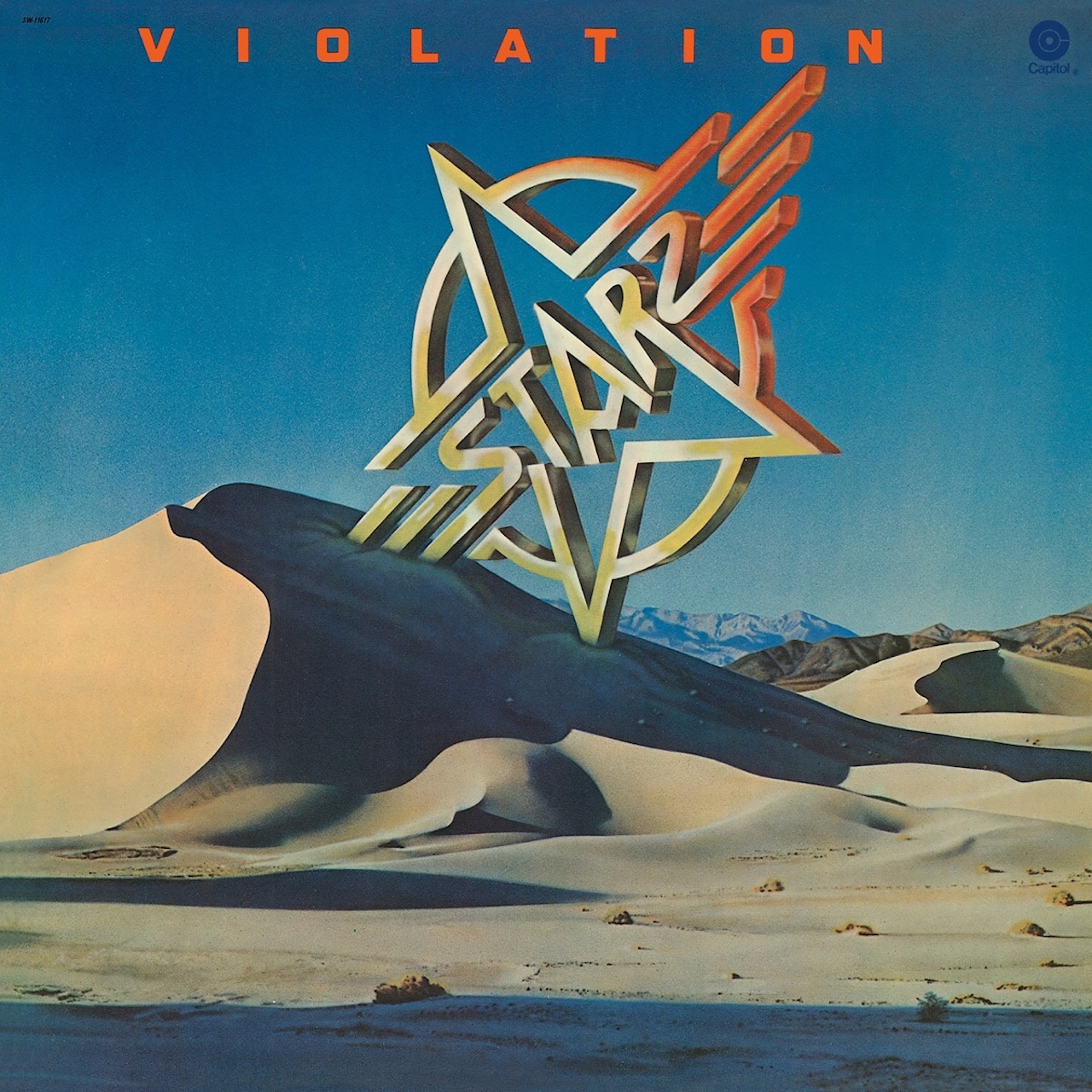
Starz should have broken through to enormous success. That it didn’t quite happen is no reflection upon their ability or talent, but a damning indictment of the crazy world we live in.
Violation was Starz’s second album, a glorious culmination of the promise shown on the previous year’s self titled debut. The world was their oyster, and Violation was the classiest pearl to have emerged from the late 70s US hard rock brigade for years.
Of course, like all great bands, they had a secret weapon, namely vocalist Michael Lee Smith. His instantly-identifiable voice, like a dynamic mash up of Steven Tyler and Paul Stanley, made the songs resonate with maturity and class. Then, of course, there are the songs. Violation is a prime example of why albums were so revered back in the day, offering a journey not only into the present but also to the future.
A concept album of sorts, Violation brings together a brilliant selection of tracks that not only point to the sort of young man’s blues most of us were dealing with at the time, but also gave them a quasi-futuristic sci-fi edge. On one hand you’ve got the pure sleaze rock of Cherry Baby and Sing It Shout It, while on the other you’ve got the title track promoting its dystopian, Orwellian message of doom and gloom via an irresistable, undeniably killer arrangement.
Rock Six Times, spins a neat yarn about a kid finding a copy of an Aerosmith record after a cataclysmic war and wondering why rock‘n’roll ain’t around anymore. But the icing on the cake is undoubtedly Subway Terror, a brutal induction into a world of violence, inspired no doubt by movies like A Clockwork Orange and The Warriors.
Starz ultimately failed to reach the platinum plateau but their reputation continues to shimmer brightly amid a sea of underachievers that coulda, shouda and oughta have made it.
Arc Angel – Arc Angel (1983)
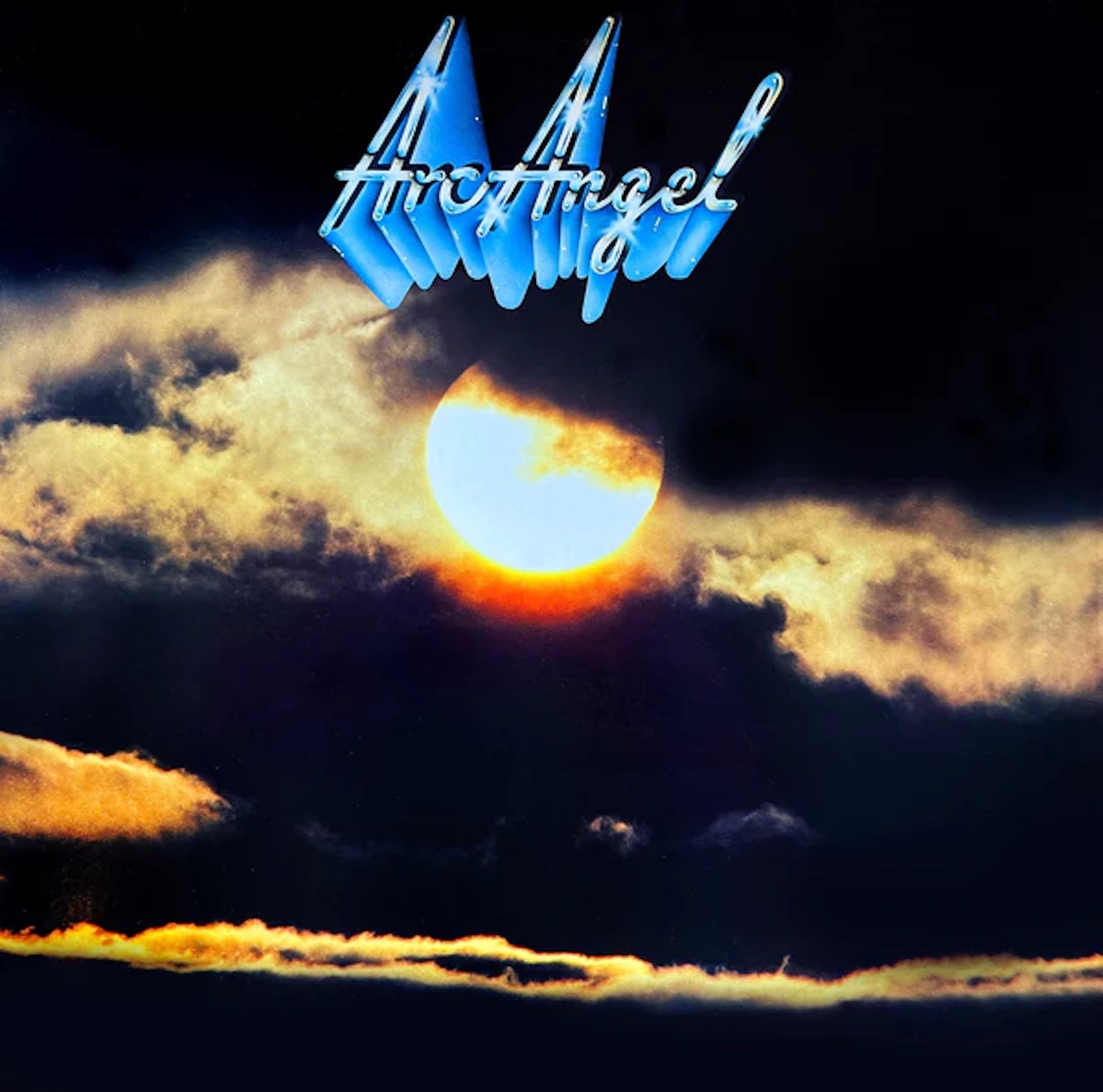
Just when you thought pomp rock couldn’t get any better, a record arrived to blow that theory right out of the water: Arc Angel’s self-titled 1983 debut, which should have gone multi-platinum (and beyond).
Although Arc Angel were marketed as a full band, the truth is they were primarily the work of two men, Jeff Cannata and Michael Soldan, musicians and songwriters from Connecticut with a secret past. The two had previously played in highly regarded prog-psych band Jasper Wrath (one very rare album to their name), while Cannata had dabbled in Zolder & Clark and Arden House, whose LPs are again both very rare artefacts.
Surrounding themselves with the cream of the East Coast session scene (including keyboardist Jeff Bova, Doug Katsaros and Chuck Burgi from Balance, James Christian and future Bon Jovi bassist Hugh McDonald) they recorded their only album with Tony Bongiovi (Jon Bon Jovi’s uncle and co-owner of the Power Station Studio in NYC). The results boasted all the hallmarks of prime early 80s pomp: keyboards and guitars dive-bombing in unison, hooks’n’choruses exploding in brilliant formation. Check Stars, Tragedy and Wanted Dead Or Alive for superlative examples of glorious melodic AOR, topped off with the kind of magical vocal that made Aldo Nova’s debut album so instantly appealing.
Sure, Arc Angel failed to generate much excitement outside of hardcore pomp rock and AOR circles but that didn’t stop Jeff Cannata from throwing his hat back in the ring with his next project, Images Of Forever, attributed to just Cannata and issued on CBS in 1988. Since then, he’s been active, releasing recordings on his own label that mix prog with pomp and keep true to his original vision. If you rediscover just one pomp rock album then please let it be Arc Angel, a work of sublime brilliance. DO
Giuffria – Giuffria (1984)
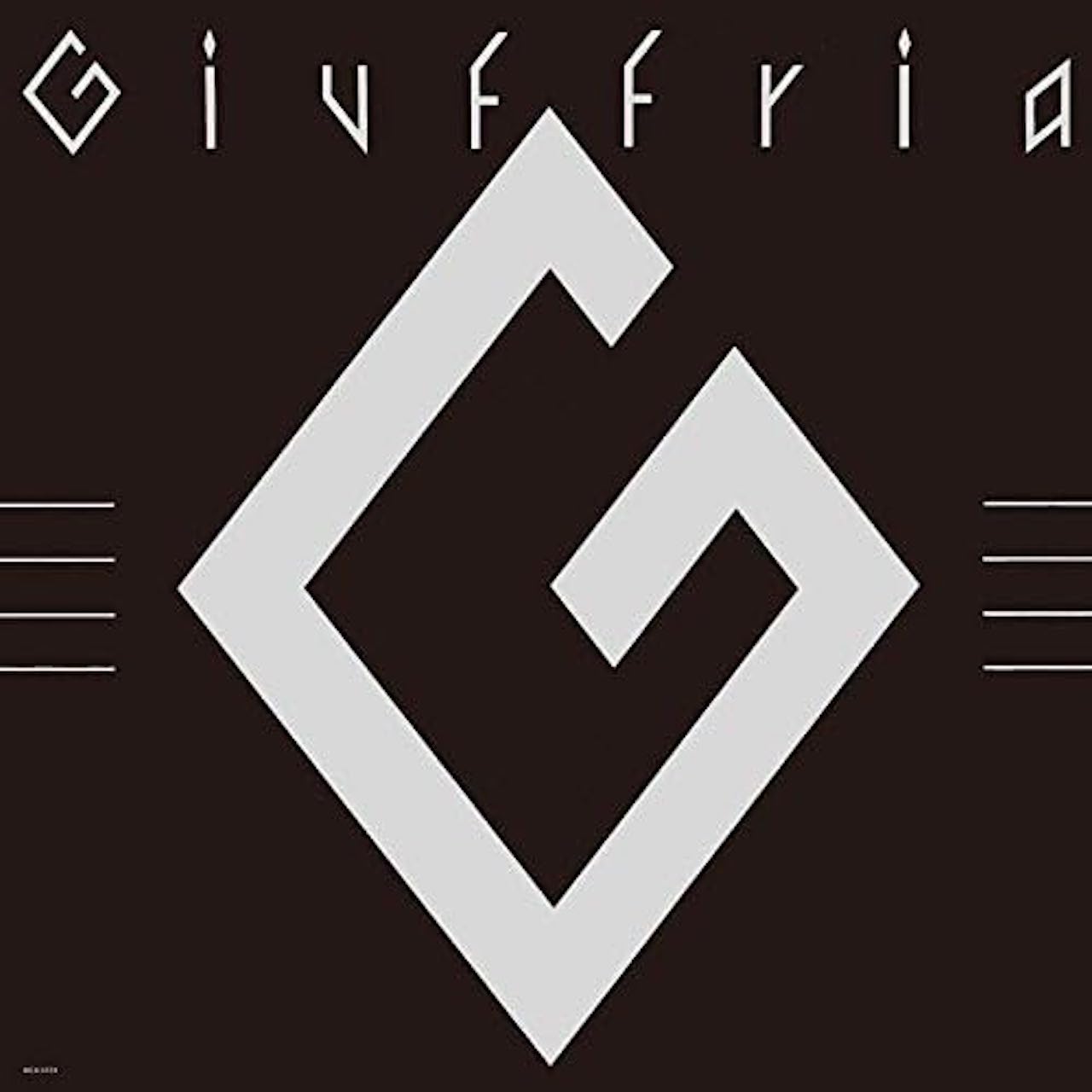
Devastated by Angel’s failure to connect with a larger audience, Keyboard King Gregg Giuffria (pronounced Je-free-Ah) retreated to his palatial Hollywood home and made plans to build the perfect pomp rock beast. Taking the role of keyboardist himself, he quickly hired relatively unknown vocalist David Glen Eisley and guitarist Craig Goldy, both briefly of Rough Cutt, along with seasoned bassist Chuck Wright (who had played with Quiet Riot) and drummer Alan Krigger.
Gregg’s masterplan was to continue on his path of melodic nirvana, but inject it with a beefy blues-rock swagger and David Glen Eisley’s monster vocals, which sounded like a cross between Paul Sabu and Steve Perry. Giuffria’s self-titled debut (released in the US on MCA in November 1984), expertly produced by Kansas collaborator Jeff Glixman, is stuffed to the gills with killer songs and a brutal, ‘take no prisoners’ drive. The interaction between Eisley and Giuffria is particularly stunning, both men fighting for musical superiority.
Boasting nine terrific songs, knockout punches include anthemic melodic rockers like Do Me Right, Call To The Heart, Trouble Again and Don’t Tear Me Down, boasting huge hooks, bellowing vocals, dense keyboard support, pounding bottom-end and arrangements to die for. However, it’s final track The Awakening/Out Of The Blue that points to Giuffria’s past. Part experimental and part traditional, this eight-minute track fuses prog with pomp in a way that few have attempted, resulting in an impressive and haunting atmosphere that still sounds fresh to this day. As a prime example of early-80s North American melodic pomp rock this album has few rivals.
Gregg and chums would go on to thrill us with one more expertly crafted opus, Silk And Steel in 1986, before dissolving, allowing Gregg to further his masterplan in the equally flamboyant House Of Lords, signed to Gene Simmons’ record label, Simmons Records. DO
Tané Cain – Tané Cain (1982)
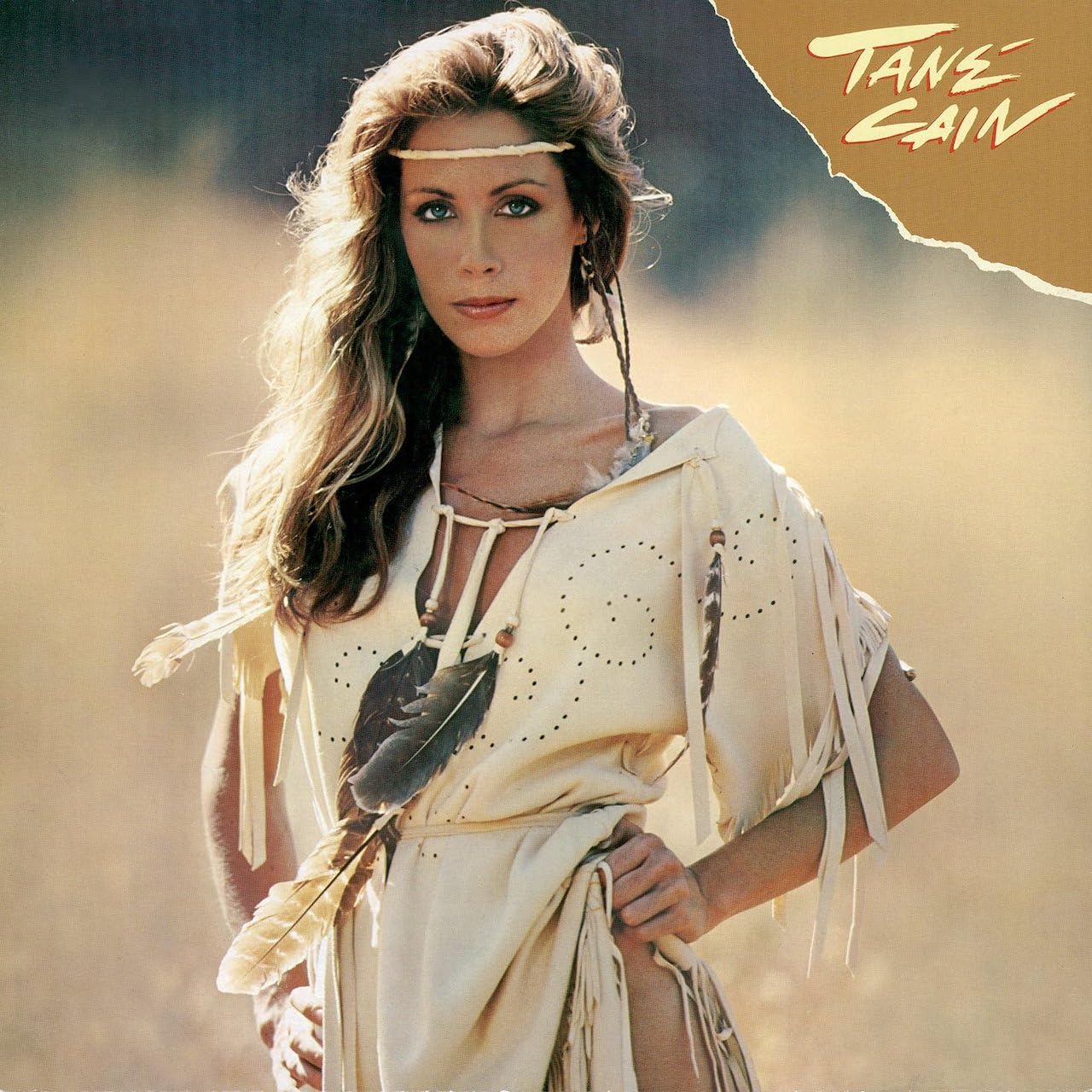
Tané Cain was the AOR hostess with the mostest back in 1982, riding buckskinned and bareback into our lives and blasting out picture-perfect AOR. Her background was intriguing: the daughter of celebrated American TV and film actor Doug McClure, she was raised in Hawaii before moving to San Francisco where she met and eventually married Journey keyboardist Jonathan Cain. Whether Jon helped her to swing a record deal with RCA is unknown, but with a contract in the bag his spousal help was certainly on display.
Co-writing eight of the nine tracks (with Pug Baker, formerly of obscure mid-70s hard rock combo Rockin’ Horse) Jonathan Cain’s contribution didn’t just stop at songwriting, as he co-produced Tané’s self-titled album with Keith Olsen and played keyboards too. With musical support from several top-rated West Coast session players, including drummer Mike Baird, bassist Dennis Belfield and guitarists Tim Pierce, Chas Sandford and Journey colleague Neal Schon, the vibe is very in keeping with the early 80s AOR spit and polish.
Most of the songs and performances bring to mind acts such as Spider (with Holly Knight and Amanda Blue), Shanghai, Scandal (featuring Patty Smyth) and, in particular, Pat Benatar. If anything it was the Benatar comparisons that ultimately sank the ship with critics asking why would the world need a PB clone? Look out too for a lovey-dovey duet with husband Jon on the Beau Hill/Sandy Stewart-penned track Almost Any Night, a vintage tearjerker if we’ve ever heard one. Elsewhere the emphasis is on upbeat toe-tappers such as Holdin’ On, Danger Zone and the brilliant full-tilt rock of Temptation.
Sadly, the album failed to sell sufficient quantities to keep her signed to RCA and she was dropped. She split from Jonathan Cain, throwing herself into a movie career that produced better results than her musical one, with her starring in a number of box office winners.
Zon – Astral Projector (1978)
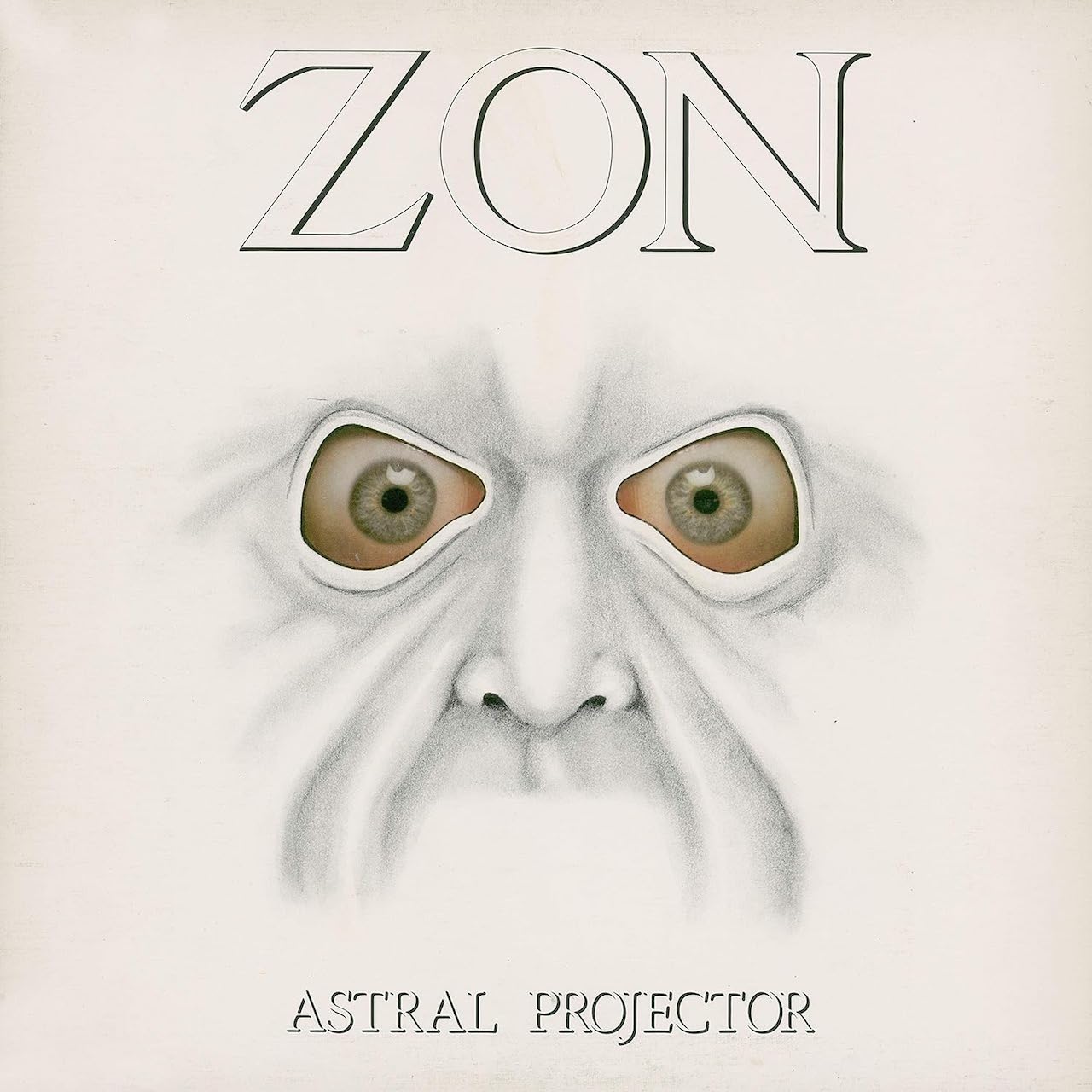
When one thinks of all the great pomp rock bands from the 1970s – and I’m thinking of Styx, Kansas, Saga, Trillion et al – Zon have to be considered among them, despite the fact that during their lifetime they barely registered a blip on the commercial radar.
Formed in Toronto, Canada and signed to Epic Records, Zon’s debut Astral Projector (1978) became the album of choice amongst the late 70s AOR cognoscent. Musically, they were right in the pocket, utilising all the tricks of the trade – including lashings of keyboards, solid-gold guitar action, shout-it-out-loud vocals and ambitious lyrics, all wrapped up in quasi-prog arrangements. Indeed, there is an argument to be made to actually identify Zon as a prog rock band by proxy, a point driven home by their penchant for sporting face make-up – a sort of Marcel Marceau-meets-Peter Gabriel look.
Issued on ice-blue vinyl, the luxurious and expensively embossed gatefold cover of Astral Projector promised a hidden treasure trove of pomp rock pleasure. It didn’t disappoint either, kicking off with the anthemic Put On The Show, a track that must surely rank amongst the best pomp-prog anthems of all time. Sounding like a fierce combination of Styx and Starcastle, it prances and preens its way through a myriad of ultra-cool moves. Elsewhere the content is equally as beguiling, with toons such as Man In The Mirror and Point Of View/Where To Spend My Dollar offering manna to the masses.
Zon managed to record two further albums before hitting a brick wall in 1981, a victim of the times with new wave and post punk temporally deposing of anything operating even vaguely close to the sound of classic pomp and AOR. Still, we do have the recorded evidence to remember them by. DO
Quarterflash – Quarterflash (1981)
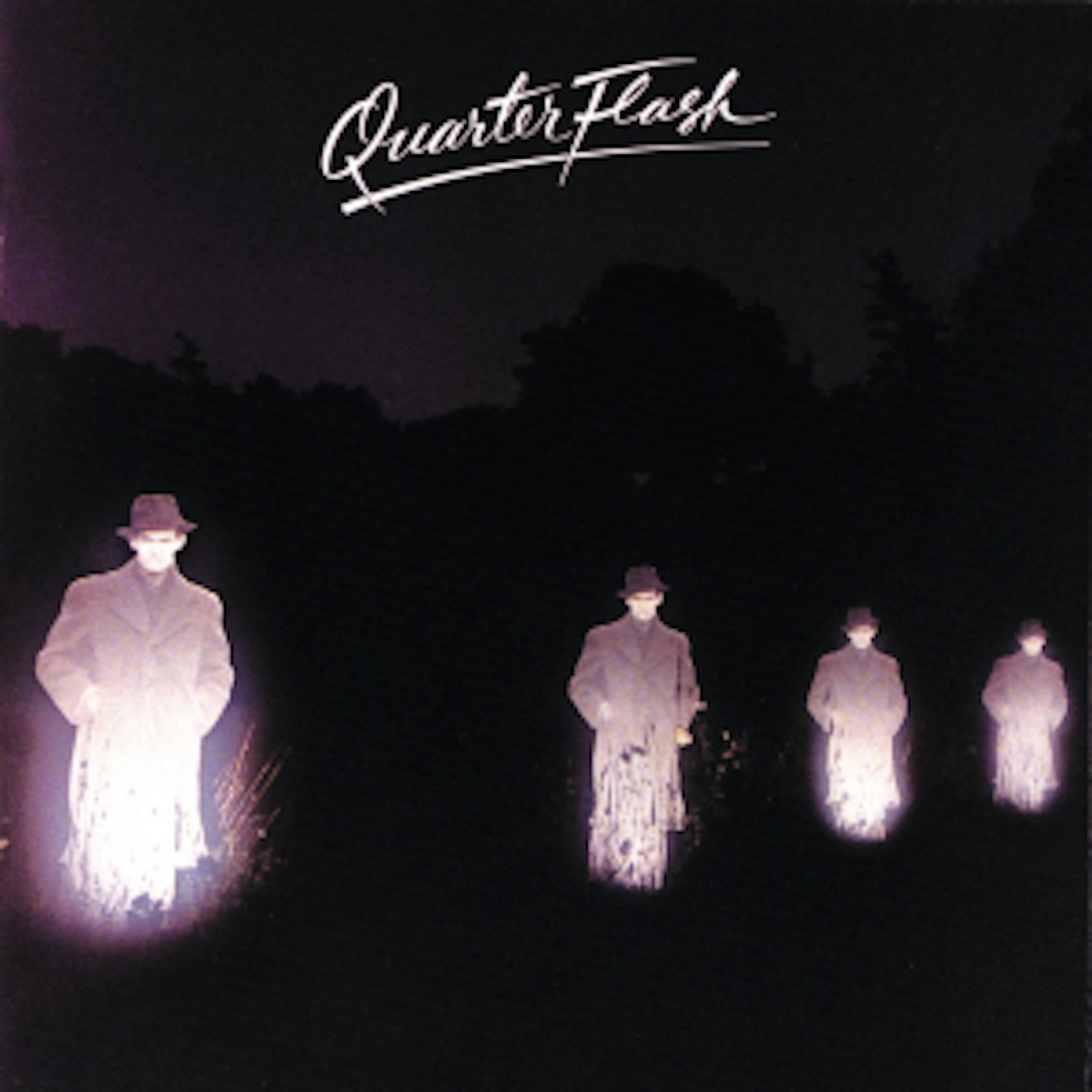
Under normal circumstances scoring a top three US hit single should make you a household name but if there was one such act that appears to have escaped immortality then it must surely be Portland’s very own Quarterflash.
Formed in 1980, this six-piece AOR unit were fronted by husband-and-wife team Marv and Rindy Ross, who conjured up a stylish sound that was half Steely Dan and half Fleetwood Mac. A soft-rocking dream ticket, focusing on smooth production, lush harmonies and instantly hummable hooks.
Originally named as the rather un-AOR-sounding Seafood Mama, they issued a self-financed single Harden My Heart which caught the attention of local Portland radio, turning it into a regional hit. This success prompted Geffen Records to quickly sign the band and re-record the track while swiftly changing their name to Quarterflash, an Australian slang term for new immigrants.
Harden My Heart went on to become a cross-border smash hit single, propelling the band to platinum status while introducing diminutive frontgal Rindy Ross as a major new talent. With a silky smooth tone with an distinctive rasp beneath it, Rindy’s voice recalled Kim Carnes, Bonnie Tyler and Stevie Lange. She could also blow a mean saxophone, as several of the tracks on their self-titled debut album testify.
Produced by John Boylan (Boston) and with nearly all the tracks written by Rindy, the 1981 release was a major success providing yet another top twenty hit with the equally sanguine Find Another Fool, making it even more surprising that the band aren’t held in higher esteem.
For the Rosses it was a slow burn-out. Two further albums followed before Geffen pulled the plug, leaving the band to struggle during the late 80s and early 90s on the oldies circuit, occasionally issuing material on an independent basis. And that’s a shame because all their recorded work has been of exceptional quality, even though this, their debut album, was a high-water mark in precision-engineered AOR. DO
Derek’s lifelong love of rock and metal goes back to the ’70s when he became a UK underground legend for sharing tapes of the most obscure American bands. After many years championing acts as a writer for Kerrang!, Derek moved to New York and worked in A&R at Atco Records, signing a number of great acts including the multi-platinum Pantera and Dream Theater. He moved back to the UK and in 2006 started Rock Candy Records, which specialises in reissues of rock and metal albums from the 1970s and 1980s.
